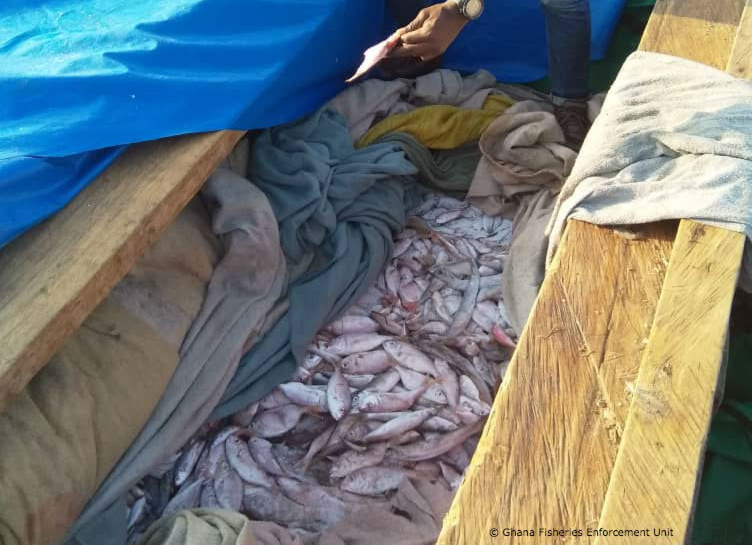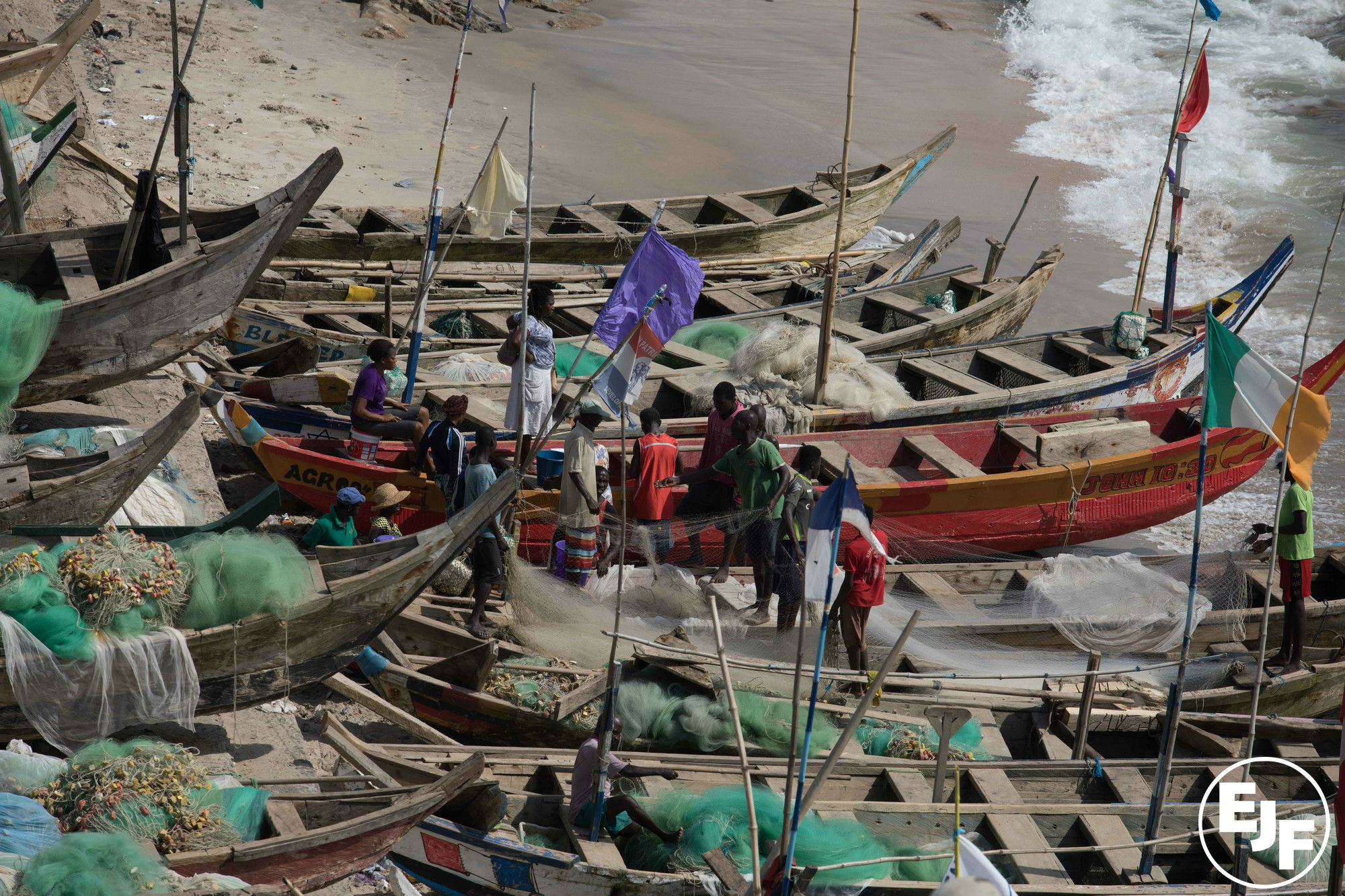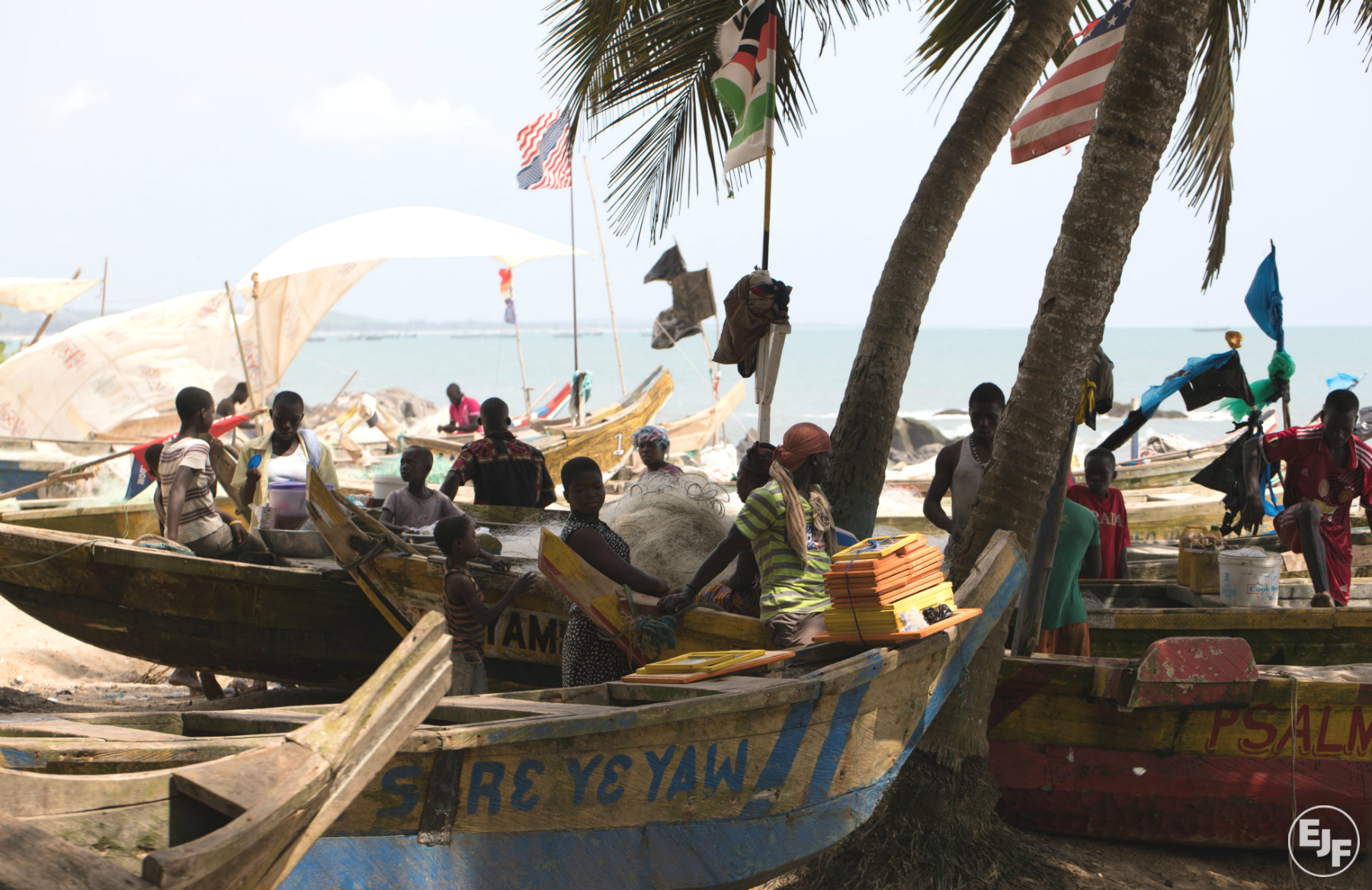
Ghana steps up the fight against illegal fishing practices
Ghana has stepped up its efforts to crack down on ‘saiko’ – an illegal practice driving the collapse of Ghana’s inshore fishery, whereby industrial trawlers sell fish to local canoes at sea. Yesterday, the country’s Fisheries Enforcement Unit intercepted an alleged saiko canoe loaded with tonnes of frozen fish.
To bring an end to this destructive practice once and for all, the Environmental Justice Foundation (EJF) and partner Hen Mpoano are calling for sanctions to follow the arrests, which must be imposed not only on the saiko canoe owner, but also the operators and owners of the industrial trawler that caught the fish.
Saiko, originally an informal trading system where unwanted industrial bycatch would be exchanged at sea for fruit and livestock brought by canoes, is now a part of targeted fishing for trawlers in Ghanaian waters. Not only is it illegal, it puts industrial fishing vessels in direct competition with small-scale fishers for catches of species such as sardinella that are a staple food for local communities.
Having effectively ‘stolen’ fish from canoe fishers, saiko operators sell these back to the same fishing communities for profit.
Images taken by the Fisheries Enforcement Unit yesterday reveal the sheer volume of fish that may be transported in a saiko canoe – an average saiko trip lands 26 tonnes of fish, the equivalent of around 400 traditional ‘artisanal’ canoe trips. The photos also show that many of the fish intercepted in yesterday’s enforcement action appear to be juveniles – often true for saiko catches – which undermines the ability of the fish stocks to recover from overfishing.
Saiko is illegal under Ghanaian law, attracting a fine of between US$100,000 and US$2 million. The minimum fine increases to US$1 million where catches involve juvenile fish or the use of prohibited fishing gear. The owner and crew of the saiko canoe intercepted on Wednesday have been arrested and taken in for questioning.
“This is essential work on the part of the Ghanaian government and follows the positive steps already taken this year to stop saiko, such as placing observers on vessels” says EJF Deputy Director Max Schmid. “These enforcement actions must now be followed by deterrent sanctions. Importantly, these should be imposed not only on the saiko canoe owner, but also the operators and owners of the industrial trawler that caught the fish. All trawlers are now subject to satellite monitoring, with human observers also present. Along with information from the owner and crew of the saiko canoe, it will be possible to identify the industrial vessel and to hold those responsible to account.”
EJF and Hen Mpoano are urging the authorities to be fully transparent in the conduct of this case, and to ensure that the outcome, including the sanctions imposed and the amount paid, are published on the Ministry of Fisheries and Aquaculture Development website.
“Sanctions must be no less than the minimum specified in the legislation, regardless of whether the case is settled in or out of court, and should include the cancellation of licences where repeat offences are detected,” says Director of Hen Mpoano Kofi Agbogah. “Only then will they act as a true deterrent for potential offenders.”
This case is a crucial opportunity for the Ghanaian government to demonstrate that engaging in illegal and destructive fishing practices in Ghana’s waters will not be tolerated.
SIGN UP FOR OUR EMAILS AND STAY UP TO DATE WITH EJF

